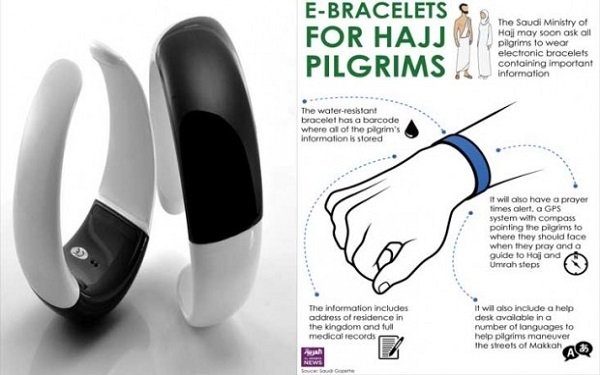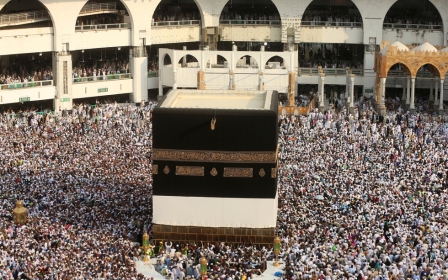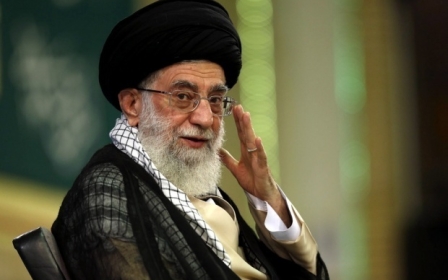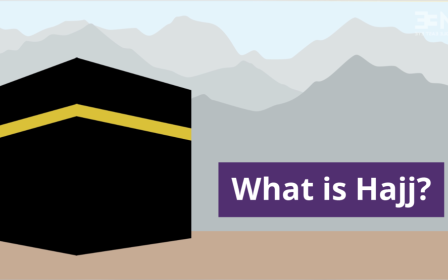Saudi Arabia pledges to protect pilgrims as hajj begins
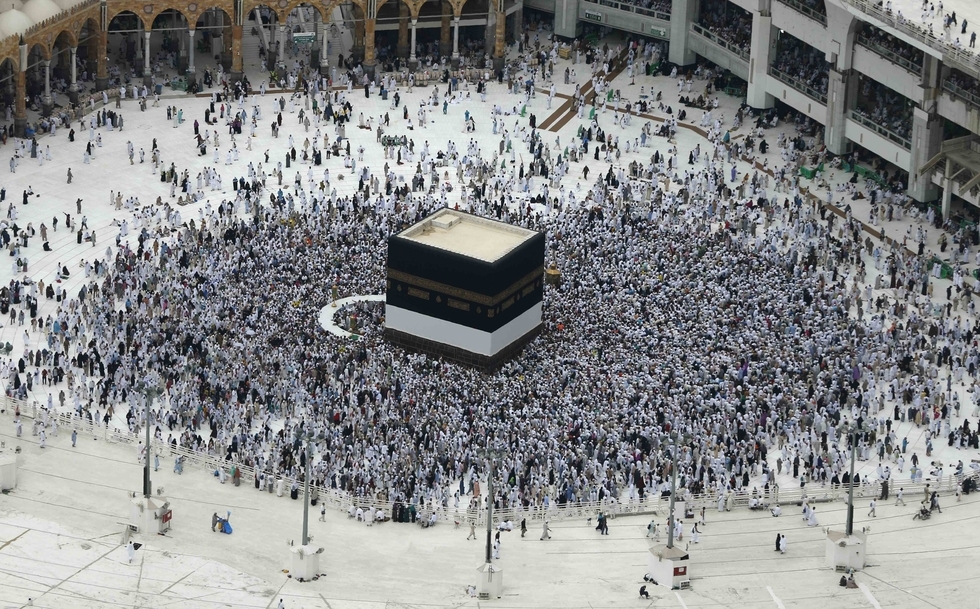
More than a million Muslims are taking part in the annual hajj pilgrimage on Saturday in Saudi Arabia, where authorities said they have introduced a series of new measures to protect the safety of pilgrims.
Muslims from around the world have been travelling to Saudi Arabia since August in preparation for the five-day pilgrimage that all believers must complete at least once in their lifetime providing they are fit and able.
This year’s hajj takes place against the backdrop of last year’s tragedy, when more than 2,000 pilgrims were crushed to death in Mina as they took part in the pilgrimage.
Saudi authorities still have not provided an explanation as to why the crush took place, which resulted in the highest loss of life ever on the hajj.
Authorities claim 769 people were killed when huge crowds collided at a crossroads in Mina on the outskirts of the holy city of Mecca where pilgrims gather to perform a ritual of stoning the devil.
However, MEE revealed last year that the actual death toll was at least 2,432, in a count that involved using numbered photographs from public morgues used for people to identify the bodies of loved ones.
A year on and Saudi authorities have moved to introduce new safety measures aimed at ensuring the Mina crush is not repeated.
This year all pilgrims must wear an electronic wristband that contains each individual’s personal and medical information. It also provides information about prayer times and includes a help desk available in numerous languages.
British pilgrim Dawood Masood, who is performing hajj for the first time this year, told MEE that he has his electronic band and was satisfied with the new safety measures.
“The electronic bracelet can be traced by GPS and has allowed a few families who were unable to find their loved ones,” he said via telephone from Mecca. “I have also seen an increase number of security and surveillance cameras.
“The management of Mecca is trying their best to safeguard people from any incidents.”
Local media has reported that almost 1,000 new security cameras have been installed at Mecca’s Grand Mosque, which will be linked to control rooms staffed by special forces who will oversee pilgrim movements during the hajj.
As well as increasing direct security measures a number of smartphone applications have been launched to provide religious and logistical information to pilgrims.
“One new technology that could potentially lessen the likelihood of stampedes this year is the advent of a number of new phone applications,” said Fahad Nazar, political analyst at the Virginia-based JTG Inc and former political analyst at the Saudi embassy in Washington.
“One such app can reportedly alert the user about congested areas in the Grand Mosque and its environs.”
A guide issued by Al Arabiya includes the app Hajjnavigator that allows pilgrims to map their routes and estimate journey times while performing hajj.
Another app is Hajjsalam, which counts the number of times pilgrims circle the Kaaba in Mecca – each pilgrim must circle the Kaaba seven times, which is a building in the centre of the Grand Mosque believed to have been built by Abraham as the House of God.
On top of the new safety measures Saudi officials have publicly stated their desire to protect pilgrims after last year’s crush. An interior ministry spokesperson said at a news conference on Friday: “We won’t hesitate to sacrifice ourselves to protect pilgrims and foil the plots of those who seek to undermine their security and safety.”
Former Saudi official Nazer said terrorism is another threat authorities have taken into account while organising security for this year’s pilgrimage.
“The Islamic State’s apocalyptic vision suggests that attacking the Hajj itself is not out of the realm possibilities,” he said. “It did conduct a suicide bombing just outside the Prophet’s Mosques at the end of Ramadan.
“To guard against acts of terrorism or sabotage, the Saudi government has deployed tens of thousands of security personnel as well as hundreds of security cameras to monitor the Grand Mosque and its environs.”
Although Nazer described hajj management as one of the Saudi government’s “most important responsibilities” a political row over last year’s crush has seen regional rival Iran demand Riyadh have the hajj taken away from them.
At least 464 Iranian pilgrims were killed in the Mina crush, and since then relations between the two countries have fallen apart since Saudi authorities executed Shia cleric Nimr al-Nimr in January this year.
Prior to the beginning of this year’s hajj Iran’s Supreme Leader Ali Khamenei issued a thunderous letter in which he called Saudi Arabia a “puny Satan” which should be stripped of hajj duties. Khamenei accused Saudi leaders of murdering the pilgrims who died in the crush and urged Muslims to oppose them for their claimed blasphemy.
The political fallout between the two rivals has meant that Iranian pilgrims won’t take part in this year’s hajj.
The row has even led to accusations that Saudi Arabia paid British security firm G4S to produce the electronic bracelets given to each pilgrim.
G4S is well known for its work in Israel, where it has worked for the government in upholding the occupation of the Palestinian Territories – this means many Muslims would be outraged at Saudi Arabia working with G4S.
However, there has been no evidence produced to back the claims of G4S involvement, and the Saudi embassy in Cairo said there was no truth the British security firm had produced the bracelets.
Beyond the politicisation of the hajj and its organisation, the memories of last year’s crush will prove hard to forget for those involved.
A survivor who spoke to the New York Times recounted the horror of their experience, including hearing shouts of “I’m dying, I need water” from fellow pilgrims who lay mangled on the ground as thousands of people converged in Mina.
But for all the criticism of Saudi authorities and their handling of the Mina crush, there are some who were present that day who believe officials did the best they could in trying circumstances.
“The authorities did a great deal to control the situation then – and allowed the hajj to carry on,” one Saudi citizen told MEE on condition of anonymity. “I don’t hold my government in high esteem but they did prove quite able then.
“We must remember that the king is after all the Custodian of the Two Holy Mosques and his reputation – not to mention his legitimacy – banks heavily on the hajj.”
Nazer agreed, and said the role of King Salman as protecting the holy mosques is such that the government has lavishly spent on improving the whole hajj experience for pilgrims in recent years.
“Saudi organisers have spent billions of dollars expanding the Grand Mosque itself and have built several bridges and tunnels to accommodate the ever increasing numbers of pilgrims performing rites at sites outside Mecca, like Mina, where a number of tragedies have occurred over the years,” he said.
“Some have maintained that the sheer number of people moving back and forth between sites that are in relatively confined spaces has meant that accidents in the form of stampedes or firs are difficult to prevent completely.”
For British pilgrim Masood, he agreed that the more than million people converging on the holiest sites in Islam mean it is impossible to guarantee fully the safety of everyone involved.
“I feel safe but sometimes incidents can occur when so many people are gathered in one place,” he said. “There are always concerns when travelling to another country.
“However, the concerns are not so much this year as they (Saudi authorities) have postponed the expansion project during this busy period. The increased security presence has happened to make sure the journey of a lifetime is comfortable for pilgrims.”
This article is available in French on Middle East Eye French edition.
New MEE newsletter: Jerusalem Dispatch
Sign up to get the latest insights and analysis on Israel-Palestine, alongside Turkey Unpacked and other MEE newsletters
Middle East Eye delivers independent and unrivalled coverage and analysis of the Middle East, North Africa and beyond. To learn more about republishing this content and the associated fees, please fill out this form. More about MEE can be found here.


